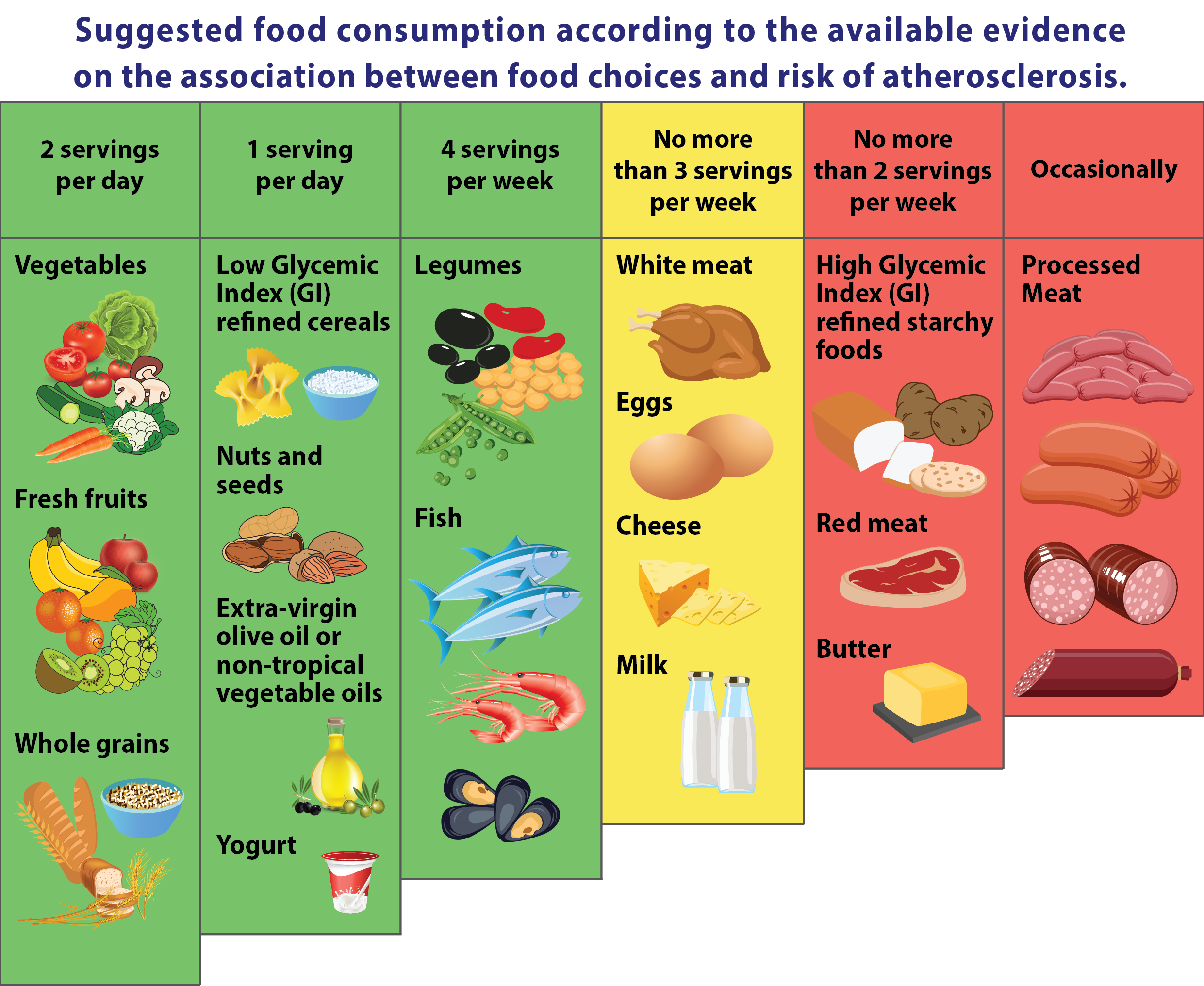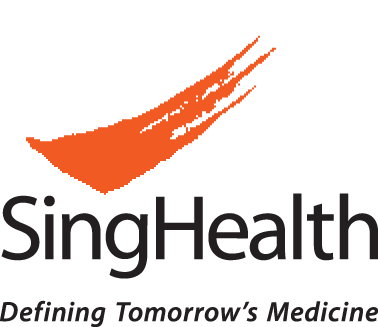- Joined
- Aug 20, 2022
- Messages
- 19,706
- Points
- 113
Diet for Cardiovascular Disease Risk Reduction
By Clin Asst Prof Huang Zijuan
The article is contributed/written by National Heart Centre Singapore

Dear reader,
When it comes to diet, everyone has an opinion on what’s best. How do we tell what is helpful amidst all of these information?
The short answer - hard facts and data. When there are many different sources of research data from various studies, it is useful to look at systematic reviews and meta-analysis which collect data from all currently available relevant studies. Systematic reviews and meta-analysis show where most of the evidence points to, which lowers the likelihood of being misled by single studies with results that perhaps, are not reproducible in other studies.
This article aims to share a summary of the results in a recent systematic review – (i) the diet that is associated with lower risk of cardiovascular disease (CVD), including stroke and heart attack, (ii) what exactly you can do to achieve a heart healthy diet, and (iii) how effective each component of the diet is in reducing your risk of CVD.
What is noteworthy is that a heart healthy diet as described below not only is associated with decreased incidence of heart attacks and strokes, such a diet is associated with a lower risk of dementia as well. Multiple research studies have found that foods that are good for your heart vessels also appear to be beneficial for your brain.
This diet for prevention of CVD has the following components and are colour-coded for ease of understanding:

Legend:

The above chart was reproduced with permission from the original author of the systematic review2 with the understanding that it is for educational purposes.
The above diet draws data from randomised controlled trials where available, and mostly from meta-analysis of prospective cohort studies. These studies are adjusted for various factors like smoking, exercise levels, demographics, education levels, alcohol consumption and intake of various food groups, to show the most accurate results of the effects of diet in CVD prevention (minus the effects of all these other factors).
CVD PREVENTION DIET: WHAT TO EAT?

At least 2 servings a day of vegetables (equivalent to 400g)
Example: Raw or cooked vegetables, cabbage, broccoli, tomatoes, eggplants, carrots
Studies have shown that consuming 400g of vegetables per day has been associated with a reduction of 18 to 21% in heart disease and 34% in cardiac death. Such a risk reduction is similar to blockbuster (highly effective) medications that are used to prevent heart attacks in patients. The data also shows a similar reduction in stroke1. However, one would also need to control other risk factors such as high cholesterol, diabetes, hypertension, smoking, and lack of exercise, to achieve good risk reduction.
For individuals with heart disease or who have had a stroke before, they are at higher risk. Hence, diet alone is not enough and medications are necessary to prevent a recurrence.
At least 2 servings a day of fresh fruits (equivalent to 400g)
Example: Apples, pears, oranges, blueberries, kiwis
Consumption of 400g of fruit per day is associated with a 21% reduction of stroke and heart disease, and 32% reduction of death resulting from stroke and heart attacks.
| At least 2 servings a day of whole grain foods | and | 1 serving a day of low GI refined cereals |
| Example: Whole grain bread, rolled oats, whole grain breakfast cereals, whole grain biscuits or brown rice, in place of high GI refined carbohydrates such as white rice/bread, yellow noodles and glutinous rice | Example: Pasta, parboiled rice, corn tortilla or barley |
The serving size of each food depends on the specific item. It has been observed that each additional intake of 30g per day of whole-grain foods results in an 8% reduction in cardiac death. The data on stroke and stroke-related death is similar. Just to add, steel cut oats or rolled oats are preferred to instant oats as the latter has higher GI.
Take 1 serving a day of nuts and seeds per day (equivalent to one handful, around 30g)
Example: Almonds, walnuts, hazelnuts, pumpkin and sunflower seeds)
Daily consumption of 28g of nuts is associated with an average 25% reduction in the incidence of heart artery disease.
Take 1 serving a day of extra virgin olive oil or non-tropical vegetable oils
Example: Soybean, sunflower, safflower, and corn oil, in place of butter and other animal fats or tropical oils rich in saturated fat (i.e. coconut oil, palm oil)
An individual’s daily oil intake can range from 20g to 45g depending on energy needs. Taking olive oil rather than oils rich in saturated fats is associated with a reduction of heart disease by 7%, and death from stroke and heart disease by 8% (for every 5g increase in olive oil intake). Taking vegetable oils rich in linoleic acid (i.e. safflower, sunflower, corn, and soybean oils), rather than oils high in saturated fats leads to a similar pattern of risk reduction. But remember, do not go overboard with the olive oil or canola oil because they still contain some saturated fats which raises bad cholesterol - you can use these oils in cooking but minimise where possible, especially if you already have risk factors like high cholesterol.
Take 1 serving a day of yoghurt (unflavoured)
A protective effect has been reported for a daily amount of yogurt of at least 200g per day with close to 8% reduction in strokes and heart attacks.
Take 4 servings a week of legumes(180g per serving)
Example: Dry, fresh or frozen beans, long beans, red kidney beans, black beans, green (mung) beans, chickpeas, peas, fermented soy foods like natto and miso
Up to four servings of 180g (fresh or frozen) legumes per week has been associated with reduction in heart disease by 14%.
Take up to 4 servings a week of fish (equivalent to 150g)
Example: Fresh or frozen sardines, mackerel, cod, salmon, shellfish, tuna
A meta-analysis reported a 12% reduction in the incidence of heart disease for 4 servings of fish weekly (100g per serving); other meta-analysis indicate that even smaller fish intakes (100–150g per week) are associated with a lower benefit of about 4% to 7% reduction in heart disease. The benefit on reducing heart disease is less clear for consuming more than 3 to 4 servings per week.

No more than 3 servings a week of white meat (unprocessed poultry or turkey) (each serving equivalent to 100g)
White meat, from this summary of evidence, can be consumed in moderate amounts (up to three servings of 100g per week) based on its neutral association with atherosclerosis risk.
No more than 3 servings a week of eggs (each serving equivalent to 2 eggs)
Several meta-analysis report the absence of any significant association between moderate egg consumption (up to one egg per day) and heart disease. The data on strokes is similar.
However, current data indicate that moderate consumption of eggs (up to three servings of two eggs per week, or one egg per day) can be permitted. This may not apply to people with hyperlipidaemia or diabetes for whom more caution should be exercised. Similar caution would be advisable in those with western diet pattern, often taking foods rich in high saturated fat. For those with cardiovascular risk factors such as high cholesterol for example, it may be prudent not to exceed a weekly consumption of three egg yolks.
No more than 3 servings a week of cheese (i.e. parmesan, emmental, rocquefort) (each serving equivalent to 50g)
This is based on the amount of cheese intake seen to decrease CVD in meta-analysis. A significant reduction of about 12% in heart disease has been found for an intake of 50g per day of cheese.
No more than 3 servings a week of milk (each serving equivalent to 1 cup)
When full fat and low-fat dairy foods were evaluated, the data showed a neutral association with heart disease for both these subtypes of dairies up to a total consumption of 200g per day - these dairy foods including milk. In the context of a healthy diet naturally high in calcium with foods like dark green vegetables, soy beans, almonds, seaweed and so on, there should be no worries about inadequate calcium intake - a case in point, tofu has more calcium than milk per gram.

No more than 2 servings a week of High Glycemic Index (GI) refined starchy foods
Example: White bread, refined rice, potatoes, biscuits, pastries - the recommended serving size of each item depends on the specific item.
A daily consumption of 98g of carbohydrate consumed as high GI cereal foods is associated with a 66% higher heart disease risk.
No more than 2 servings per week of Red Meat (each serving equivalent to 100g)
Example: Unprocessed beef, pork and lamb
Three meta-analysis show a reduced heart disease and stroke death of 10% associated with every 3 servings less per week of unprocessed red meat consumed (that is, a person who takes 1 serving per week would have 10% lower stroke/heart attack death rate than another individual who takes 4 servings a week). Where consumption of unprocessed red meat was 100mg per week, there was no significant increase in risk over those who took less than this amount2.
No more than 2 servings per week of Butter (each serving equivalent to one tablespoon)
Replacement of saturated fats like butter with omega-6 PUFAs (in non-tropical vegetable oils) reduces heart disease risk by 24%.
Only occasional Processed Meat
Example: Luncheon meat, bacon, sausages and salami
A daily serving of 50g per day of processed meat is associated with a 27% to 44% increase in stroke/heart disease incidence.
For more information about the mechanisms by which the above-mentioned food components work to affect the risk of heart disease and stroke, you may refer to the original paper by Riccardi et al1.
WHAT ABOUT OTHER TYPES OF FOOD AND DRINKS?
Next, we will mention other food and drinks, including chocolate, coffee and tea, which are not in the pictorial chart above.Trans-fats
Consuming foods containing trans-fat, often found in deep fried food and chips, is associated with a higher risk of heart disease/stroke and related death, and this association is stronger than for any other type of fat. In fact, a meta-analysis has shown that a 2% increase in energy consumed from trans-fat is associated with a 23% risk increase.
Salt
Two trials on the prevention of hypertension showed that those who were asked to restrict sodium had a 25% to 30% lower risk of cardiovascular outcomes 10 to 15 years after the end of the trial. Currently, an average intake of below 5g of salt per day is recommended for healthy adults – we recommend about 2.3g sodium which works out to be about a teaspoonful.
Soft drinks
Meta-analysis have shown that a daily consumption of one serving (250 mL) of sugar-sweetened beverages (SSBs) is associated with a 15% to 22% increase in heart disease. There are similar results for stroke, stroke-related death and heart disease-related death.
As for low-calorie sweetened beverages (LCSBs), they contain sweeteners, such as acesulfame-K, aspartame, and sucralose. Meta-analysis have reported a marginal but statistically significant increase in the incidence of heart disease, stroke and related-death associated with regular consumption (1 serving per day) of LCSBs. Hence, from this review of currently available data, it would be advisable to replace such beverages with plain water where possible.
Alcoholic drinks
In the context of a healthy lifestyle, with no other contraindications such as liver disease, there is evidence that low-to-moderate alcohol consumption is associated with a reduced cardiovascular risk.
Up to 24g per day of alcohol (about two glasses of wine) was associated with risk reduction while higher intakes were associated with an increased risk. Moderate beer consumption (one can per day) was associated with a 20% lower risk of stroke/heart disease as compared with abstainers. Notably, data on all-cause death suggest a smaller intake of alcohol (10g per day) to obtain the maximal risk decrease.
Coffee and tea
The consumption of three cups of coffee per day is associated with a 10% and 16% reduction in heart disease and heart disease-related death respectively. The analysis also found that the protective effects of coffee disappeared when more than five cups of coffee were consumed daily. These beneficial effects of coffee do not apply to people with conditions that can make them sensitive to adverse effects of coffee (e.g. abnormal heart rhythms, poorly controlled hypertension etc.).
Tea consumption is associated with lower heart disease and heart disease-related death. The risk reduction is >20% for three cups of tea per day. Tea, particularly green tea, may be beneficial for arterial health due to the catechin it contains. Catechin has anti-oxidative properties useful to prevent the oxidation of LDL and favourably affects the blood cholesterol and fat profile in blood, and works to reduce inflammation in vessels. It also has effects on reducing production of plaque and clots.
In all, current data supports that we can consume up to three cups of coffee or tea per day, if there are no other contraindications.
Chocolate
A decrease in risk of heart disease of about 5% has been reported by four meta-analysis. The optimal amount of chocolate to consume may vary according to the type of chocolate. Dark chocolate contains more cocoa with its accompanying beneficial compounds than milk chocolate, which has more saturated fat and sugar.
Polyphenols, such as catechin, are present in chocolate. Cocoa also contains polymeric proanthocyanidinis, which may help reduce atherosclerosis by reducing oxidative stress and platelet activation, among other mechanisms. The current evidence allows up to 10g per day of dark chocolate where it has been shown that at this amount, the beneficial effects exceed the risk of weight gain and its harmful effects on the cardiovascular system.
In summary, the evidence for these additional food components/drinks show that acceptable daily consumption includes at least 2L of water, up to 3 cups of coffee or tea, up to 1 to 2 glasses of wine or 1 can of beer, up to 5g of salt and up to 10g of chocolate. It is advisable to avoid sugar sweetened beverages or artificially sweetened beverages, or to consume only occasionally.
Clin Asst Prof Huang Zijuan is a Consultant Cardiologist with sub-specialty interests in Preventive Cardiology and Cardiac Rehabilitation, Nuclear Cardiac Imaging and Cardiac CT. Read more on her profile.
References:
1. Riccardi G, Giosuè A, Calabrese I, Vaccaro O. Dietary recommendations for prevention of atherosclerosis. Cardiovasc Res. Published online July 6, 2021. doi:10.1093/CVR/CVAB173
2. Miller V, Micha R, Choi E, Karageorgou D, Webb P, Mozaffarian D. Evaluation of the Quality of Evidence of the Association of Foods and Nutrients With Cardiovascular Disease and Diabetes: A Systematic Review. JAMA Netw open. 2022;5(2). doi:10.1001/JAMANETWORKOPEN.2021.46705
Last updated on 02 Dec 2022


 5 Hospital Drive, Singapore 169609
5 Hospital Drive, Singapore 169609
© 2024 SingHealth Group. All Rights Reserved.














